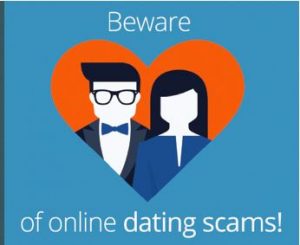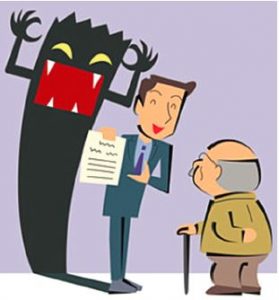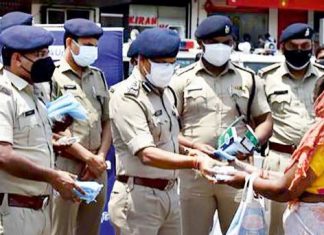 There are varieties of internet fraud. We have set out some of the more common types below. If you think you may have been scammed but cannot find something here relating to your specific case, please do not assume that you are safe.
There are varieties of internet fraud. We have set out some of the more common types below. If you think you may have been scammed but cannot find something here relating to your specific case, please do not assume that you are safe.
Advance fee frauds
Also known as 419 scams, so named after the section of the criminal law in Nigeria which makes them illegal,or simply call them “Nigerian”frauds. These take many forms, but all feature the lure of a huge sum of money or a consignment of jewellery, gold, or other valuables. They are called advance fee frauds because they all involve the victim being asked to pay fees in advance. The fees are said to be for a lawyer or barrister, court documents, registration or other formal payments needed, security company, courier or  diplomatic fees, or bribes. If the victim pays the fee, there will always be another one that needs to be paid before the money or consignment can be released, and this will continue until the victim realises it is a scam, or simply runs out of money to send. There is no consignment or huge sum of money – the entire story is a lie to get the victim to pay. The most common lies told are that there is an over-in-voiced contract with the government, an unclaimed bank account which will be forfeited if not claimed soon, a next-of-kin who has died and left the victim a fortune fortune, a political refugee (or the widow/son/daughter of one) who has valuables he cannot take out of the country alone, a dying person who wants to distribute huge sums to charity before he or she dies, or an investor who has a large sum of money to invest in the victim’s country.
diplomatic fees, or bribes. If the victim pays the fee, there will always be another one that needs to be paid before the money or consignment can be released, and this will continue until the victim realises it is a scam, or simply runs out of money to send. There is no consignment or huge sum of money – the entire story is a lie to get the victim to pay. The most common lies told are that there is an over-in-voiced contract with the government, an unclaimed bank account which will be forfeited if not claimed soon, a next-of-kin who has died and left the victim a fortune fortune, a political refugee (or the widow/son/daughter of one) who has valuables he cannot take out of the country alone, a dying person who wants to distribute huge sums to charity before he or she dies, or an investor who has a large sum of money to invest in the victim’s country.
Lottery scams
 In these, the scammer will pretend to be from a legitimate or a fictitious lottery and will tell the victim they have won a huge sum of money. Again, there will be the endless requirements for fees to register, to claim the prize, to pay a lawyer or the courier company delivering the winnings and so on, until the victim has given up or run out of money. The scammer will pretend that it is a random lottery, often based on email addresses, to get round the fact that you cannot win a lottery you have never entered. Legitimate lottery sites, names and logos are often stolen or copied and used to bolster the pretence.
In these, the scammer will pretend to be from a legitimate or a fictitious lottery and will tell the victim they have won a huge sum of money. Again, there will be the endless requirements for fees to register, to claim the prize, to pay a lawyer or the courier company delivering the winnings and so on, until the victim has given up or run out of money. The scammer will pretend that it is a random lottery, often based on email addresses, to get round the fact that you cannot win a lottery you have never entered. Legitimate lottery sites, names and logos are often stolen or copied and used to bolster the pretence.
Cheque/ or money orders cams
 There are many variations on check scams and we have more information in our specific scams section. The most popular are overpayment for goods, investor scams, and the company agent or representative scam. If you have been asked by someone you don’t know, to cash a cheque or traveller’s cheque and send the proceeds, act with extreme caution.
There are many variations on check scams and we have more information in our specific scams section. The most popular are overpayment for goods, investor scams, and the company agent or representative scam. If you have been asked by someone you don’t know, to cash a cheque or traveller’s cheque and send the proceeds, act with extreme caution.
The scammer asks the potential victim to receive payment (whether for goods being sold, investment, or from a “customer” of the scammer) and to forward all or part of the proceeds. The cheque/money order is fake, forged or stolen. The scammer hopes that the victim’s bank will not realise initially, and will clear it. The victim sends money online, the bank later realises and debits the victim’s account, and the victim has then lost the money. The bank will almost certainly not be liable, and the victim may also find that their account is closed and/or that they are arrested or investigated by the police for money laundering.
Black money or “wash wash”
 The scammer claims to have a large supply of dollar bills which have been treated with a black dye to disguise that it is money. If treated with chemicals, the money will be cleaned up and turned into legitimate currency. The victim is asked to pay for the chemicals to make the transformation, but the fee will be much less than the total value of the currency, so the victim thinks there is a profit to be made. The victim may be shown photos of the black money or invited to visit the scammer for a live demonstration of the cleaning process. In fact, all the so called money is just black paper, and the cleaning demonstration relies on sleight of hand to substitute a real banknote or bill for the piece of black paper.
The scammer claims to have a large supply of dollar bills which have been treated with a black dye to disguise that it is money. If treated with chemicals, the money will be cleaned up and turned into legitimate currency. The victim is asked to pay for the chemicals to make the transformation, but the fee will be much less than the total value of the currency, so the victim thinks there is a profit to be made. The victim may be shown photos of the black money or invited to visit the scammer for a live demonstration of the cleaning process. In fact, all the so called money is just black paper, and the cleaning demonstration relies on sleight of hand to substitute a real banknote or bill for the piece of black paper.
Love scams
 The scammer pretends to be looking for love, and engages the affection of their potential victim, often using photos from the internet to present an attractive view of themselves. They target people on dating sites or in chat rooms and will often say that they are in love remarkably quickly in an effort to attach the victim to them. Once they think their target is falling for the lies, the scammer will ask for help with living expenses or the cost of a visa or flight to the victim’s home country. Or the scammer may say that a relative is ill and needs urgent medical attention, or that they need help paying for their education.
The scammer pretends to be looking for love, and engages the affection of their potential victim, often using photos from the internet to present an attractive view of themselves. They target people on dating sites or in chat rooms and will often say that they are in love remarkably quickly in an effort to attach the victim to them. Once they think their target is falling for the lies, the scammer will ask for help with living expenses or the cost of a visa or flight to the victim’s home country. Or the scammer may say that a relative is ill and needs urgent medical attention, or that they need help paying for their education.
Charity scams
 These play on the good nature of people moved by disasters and the misfortunes of others. The scammer will claim to be an orphan in need of assistance, or a pastor or churchman looking for contributions to the work of his ministry. Remarkably quickly after almost every natural disaster in recent years, there have been scammers capitalising on it and pretending to be a charity helping the victims. Examples include 9/11, the Indonesian tsunami, and Hurricane Katrina.
These play on the good nature of people moved by disasters and the misfortunes of others. The scammer will claim to be an orphan in need of assistance, or a pastor or churchman looking for contributions to the work of his ministry. Remarkably quickly after almost every natural disaster in recent years, there have been scammers capitalising on it and pretending to be a charity helping the victims. Examples include 9/11, the Indonesian tsunami, and Hurricane Katrina.
How can I recognise a scam?
 1. This is not an exhaustive list, but it includes some of the warning signs to look for.
1. This is not an exhaustive list, but it includes some of the warning signs to look for.
- It all sounds too good to be true. There’s the potential for a large gain with very little investment of time or money.
- The approach has come out of the blue and the scammer probably does not address you by name.
- There is an insistence on urgency and on confidentiality.
- People are introduced to you by the scammer, such as bank officials, security companies, diplomats or lawyers. These additional characters will be played by the scammer or an accomplice of his.
 You’re supplied with a great number of official-looking documents (they are forged).
You’re supplied with a great number of official-looking documents (they are forged).- There’s an early request for personal and detailed information from the victim, such as address, date of birth, bank account details, or identification such as a passport.
- There are legitimate-sounding government agencies or financial organisations involved but the email address does not relate to the organisation (e.g. a scammer pretending to be a bank but using a free email account such as Yahoo). The scammer uses mobile phone numbers rather than official company landlines.
- Each fee is said to be the last and the scammer may even have claimed to pay some of the fee to build confidence and trust.
What do I do if I think I’ve been scammed?
 1. Cease all communications with the scammer immediately. Delete any emails unopened and hang up if the scammer calls you.
1. Cease all communications with the scammer immediately. Delete any emails unopened and hang up if the scammer calls you.
2.Report the scam to your local police and to the Internet Crime Complaint Centre here if you are in the US. There is not much chance that the scammer will be caught, as he is probably overseas and certainly using false details. However, the more scams are reported, the more the authorities can tell how widespread it is, and the greater the effort that goes into stopping it.
3. If you have given the scammer your bank account, credit card or other financial details, tell your bank, card company or other provider immediately, and ask them to change your accounts and card numbers.
 4. Do not accept any deliveries that are from the scammer or that you are not expecting. If you receive a cheque or something similar (such as a money order) take it to your bank or local police and tell them you think it is fake.
4. Do not accept any deliveries that are from the scammer or that you are not expecting. If you receive a cheque or something similar (such as a money order) take it to your bank or local police and tell them you think it is fake.
5. Do not panic. Whilst scammers are criminals and some of them are dangerous, the risks are negligible if you simply stop communicating with them. If you are in any doubt about your safety, report your concerns to your local police, who will be able to advise you.
 6. Don’t expect to get your money back. I am afraid there is very little prospect of that happening, and anyone who tells you they can get your money back for a fee is a scammer. Please see our section on Money Recovery Scams for more information.
6. Don’t expect to get your money back. I am afraid there is very little prospect of that happening, and anyone who tells you they can get your money back for a fee is a scammer. Please see our section on Money Recovery Scams for more information.
7. Spread the word. We know it’s very uncomfortable to feel that you got conned, or nearly got conned, but if you fell for it, so will others. Talking about it may be hard, but the more you help educate everyone about scams, less opportunities there are for scammers to e-fraud others.
8. Ask here for help and advice. It’s why we are here.













